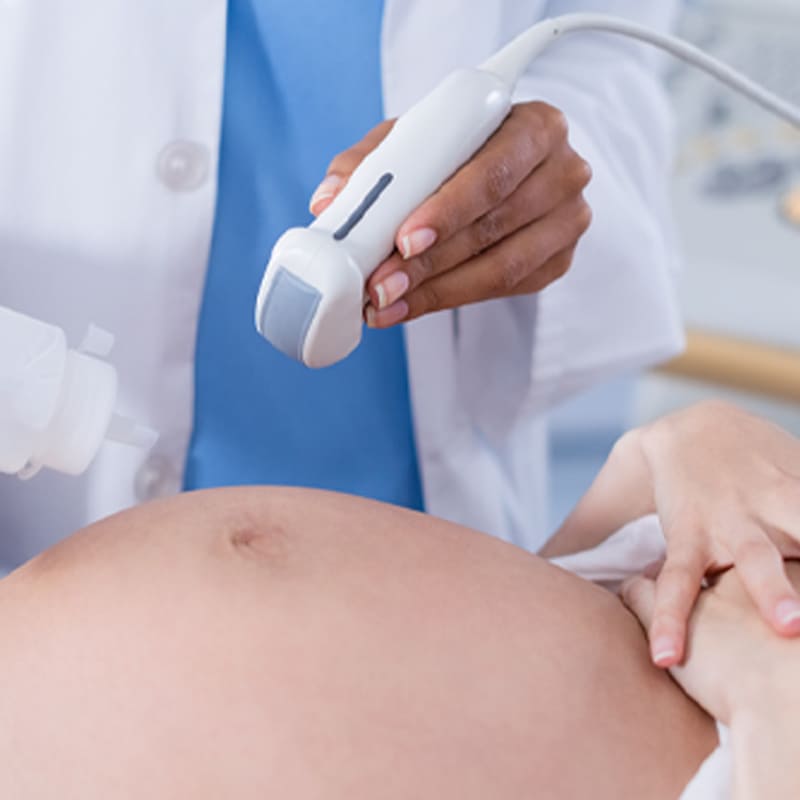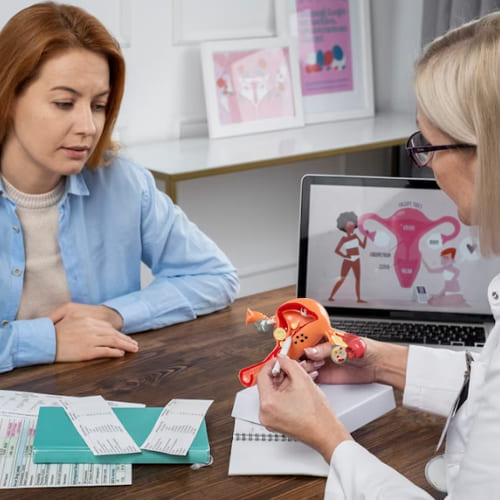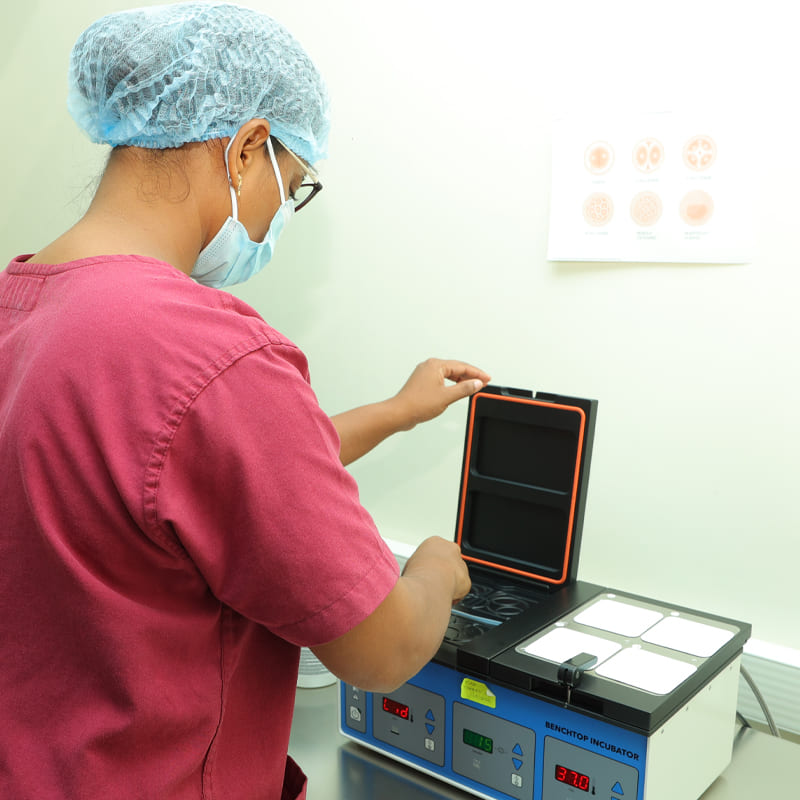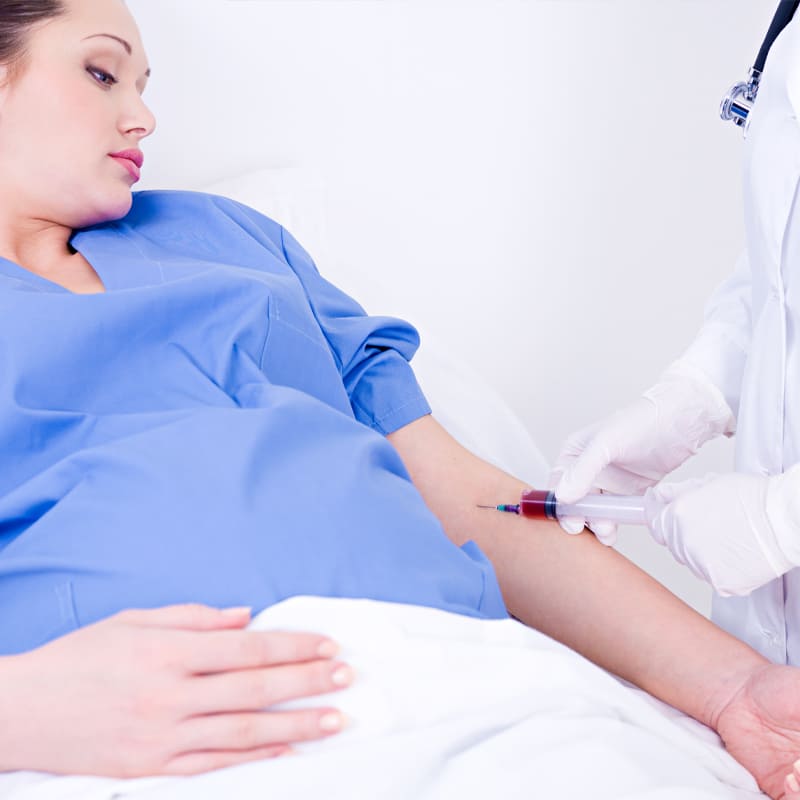SS Fertility
IVF Treatment
In Vitro Fertilization (IVF) is a cutting-edge fertility treatment. It involves fertilizing eggs with sperm outside the body in a controlled lab setting. IVF is recommended for various fertility challenges, including blocked fallopian tubes, male factor infertility, and unexplained infertility.At SS Fertility Centre, we have a strong track record of success with high live birth rates per IVF cycle. If you're looking for the best IVF treatment in Chennai, our IVF fertility centre in Chennai is here to provide exceptional care.


Preparing for IVF
Necessary Preparations and Tests:
Initial Consultation:
Schedule an initial consultation with our fertility specialists. During this meeting, your medical history, previous fertility treatments (if any), and specific concerns will be discussed.
Fertility Assessment:
Comprehensive fertility testing is essential. Both partners will undergo a series of tests to assess their reproductive health. This may include:
- Blood tests to evaluate hormone levels
- Ultrasound to examine the ovaries and uterus
- Semen analysis for the male partner
Counseling:
You'll have the opportunity to meet with our counselors to address any emotional or psychological aspects of the IVF process. This support is crucial to your overall well-being during this journey.
Customized Treatment Plan:
Based on the results of your assessments, our medical team will create a personalized treatment plan tailored to your unique needs. This plan may include specific protocols for ovarian stimulation and medications.
Lifestyle, Medication, and Diet:
Healthy Lifestyle:
Before starting IVF, adopt a healthy lifestyle by:
- Quitting smoking and limiting alcohol.
- Maintaining a healthy weight.
Medication and Supplements
Follow prescribed medications and supplements diligently.
Nutritious Diet and Hydration
Eat a balanced diet and stay hydrated for your well-being and fertility support.
Our Approach to IVF:
Personalized Care:
Every IVF journey is unique, and we tailor our treatment plans to your specific needs.
Comprehensive Evaluation:
We conduct a thorough assessment to ensure IVF is the right choice for you.
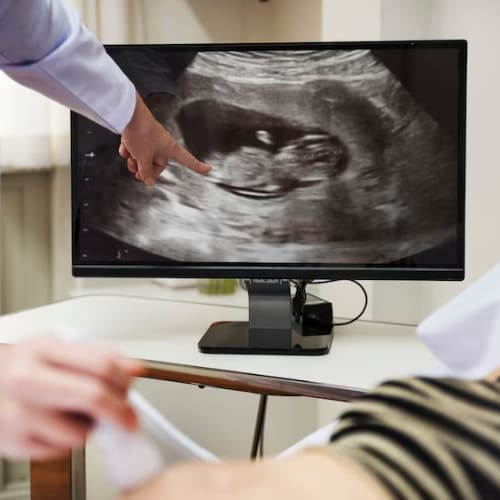
Common questions
In Vitro Fertilization (IVF) is a fertility treatment in which eggs and sperm are combined outside the body to create embryos, which are then transferred into the uterus. This method is often used when other fertility treatments have failed.
The success of IVF varies depending on factors like age, the cause of infertility, and the centre's expertise. Success rates can range from 30% to 60% per cycle. Your doctor will discuss your specific chances of success during your consultation.
IVF medications can cause side effects, including mood swings, hot flashes, abdominal discomfort, and bloating. These side effects are typically temporary and subside after treatment.
Insurance coverage for IVF varies greatly, and not all plans provide coverage. It's essential to check with your insurance provider to understand your specific coverage.
Your fertility specialist will only recommend IVF treatment if you’ve exhausted other less-invasive options first. Our goal is to get you pregnant with the least amount of intervention possible.
Maintaining a healthy lifestyle, following your doctor's recommendations, and reducing stress can all positively impact the success of your IVF cycle. Your fertility specialist will provide personalized advice.
IVF is not considered an elective procedure. It is intended to address a specific medical condition or fertility-related issue. It is usually recommended for people who have struggled to conceive for at least 12 months or who have been diagnosed with infertility.


Start your
fertility journey
Ready to start your IVF journey? Contact us today to schedule a consultation or request more information. We're here to guide you on the path to parenthood. Don't wait, take the first step toward your parenthood dream.
Book an appointment




